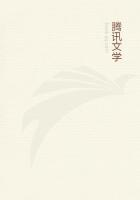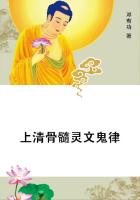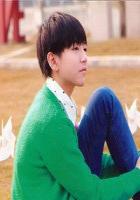Such a success could not be attained without ****** enemies, perhaps without ****** mistakes. But the more we study George Buchanan's history, the less we shall be inclined to hunt out his failings, the more inclined to admire his worth. A shrewd, sound-hearted, affectionate man, with a strong love of right and scorn of wrong, and a humour withal which saved him--except on really great occasions--from bitterness, and helped him to laugh where narrower natures would have only snarled,--he is, in many respects, a type of those Lowland Scots, who long preserved his jokes, genuine or reputed, as a common household book. A schoolmaster by profession, and struggling for long years amid the temptations which, in those days, degraded his class into cruel and sordid pedants, he rose from the mere pedagogue to be, in the best sense of the word, a courtier: "One," says Daniel Heinsius, "who seemed not only born for a court, but born to amend it. He brought to his queen that at which she could not wonder enough. For, by affecting a certain liberty in censuring morals, he avoided all offence, under the cloak of simplicity." Of him and his compeers, Turnebus, and Muretus, and their friend Andrea Govea, Ronsard, the French court poet, said that they had nothing of the pedagogue about them but the gown and cap. "Austere in face, and rustic in his looks," says David Buchanan, "but most polished in style and speech; and continually, even in serious conversation, jesting most wittily.""Rough-hewn, slovenly, and rude," says Peacham, in his "Compleat Gentleman," speaking of him, probably, as he appeared in old age, "in his person, behaviour, and fashion; seldom caring for a better outside than a rugge-gown girt close about him: yet his inside and conceipt in poesie was most rich, and his sweetness and facilitie in verse most excellent." A typical Lowland Scot, as I said just now, he seems to have absorbed all the best culture which France could afford him, without losing the strength, honesty, and humour which he inherited from his Stirlingshire kindred.
The story of his life is easily traced. When an old man, he himself wrote down the main events of it, at the request of his friends; and his sketch has been filled out by commentators, if not always favourable, at least erudite. Born in 1506, at the Moss, in Killearn--where an obelisk to his memory, so one reads, has been erected in this century--of a family "rather ancient than rich," his father dead in the prime of manhood, his grandfather a spendthrift, he and his seven brothers and sisters were brought up by a widowed mother, Agnes Heriot--of whom one wishes to know more; for the rule that great sons have great mothers probably holds good in her case.
George gave signs, while at the village school, of future scholarship; and when he was only fourteen, his uncle James sent him to the University of Paris. Those were hard times; and the youths, or rather boys, who meant to become scholars, had a cruel life of it, cast desperately out on the wide world to beg and starve, either into self-restraint and success, or into ruin of body and soul. And a cruel life George had. Within two years he was down in a severe illness, his uncle dead, his supplies stopped; and the boy of sixteen got home, he does not tell how. Then he tried soldiering;and was with Albany's French Auxiliaries at the ineffectual attack on Wark Castle. Marching back through deep snow, he got a fresh illness, which kept him in bed all winter. Then he and his brother were sent to St. Andrews, where he got his B.A. at nineteen. The next summer he went to France once more; and "fell," he says, "into the flames of the Lutheran sect, which was then spreading far and wide." Two years of penury followed; and then three years of school-mastering in the College of St. Barbe, which he has immortalised--at least, for the few who care to read modern Latin poetry--in his elegy on "The Miseries of a Parisian Teacher of the Humanities." The wretched regent-master, pale and suffering, sits up all night preparing his lecture, biting his nails and thumping his desk; and falls asleep for a few minutes, to start up at the sound of the four-o'clock bell, and be in school by five, his Virgil in one hand, and his rod in the other, trying to do work on his own account at old manuscripts, and bawling all the while at his wretched boys, who cheat him, and pay each other to answer to truants' names. The class is all wrong. "One is barefoot, another's shoe is burst, another cries, another writes home. Then comes the rod, the sound of blows, and howls; and the day passes in tears." "Then mass, then another lesson, then more blows; there is hardly time to eat." I have no space to finish the picture of the stupid misery which, Buchanan says, was ruining his intellect, while it starved his body. However, happier days came. Gilbert Kennedy, Earl of Cassilis, who seems to have been a noble young gentleman, took him as his tutor for the next five years; and with him he went back to Scotland.















